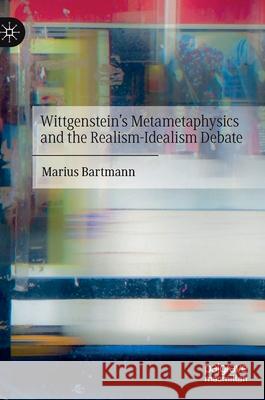Wittgenstein's Metametaphysics and the Realism-Idealism Debate » książka
topmenu
Wittgenstein's Metametaphysics and the Realism-Idealism Debate
ISBN-13: 9783030733346 / Angielski / Twarda / 2021 / 324 str.
Kategorie BISAC:
Wydawca:
Palgrave MacMillan
Język:
Angielski
ISBN-13:
9783030733346
Rok wydania:
2021
Wydanie:
2021
Ilość stron:
324
Waga:
0.55 kg
Wymiary:
21.01 x 14.81 x 2.06
Oprawa:
Twarda
Wolumenów:
01
Dodatkowe informacje:
Wydanie ilustrowane











